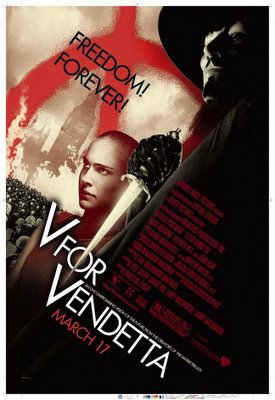
The question of art - and of film especially - keeps popping up in my Internet wanderings. I found
this article
about the question of
pagan vs. Christian filmmaking
at
Libertas. This surprised me, probably because I hadn't considered it before:
There is one exception to my argument that non-Christians make the best Christian films. A particular group of Christians has excelled in its craft during the past century of cinema. This fraternity includes Frank Capra, Francis Ford Coppola, John Ford, Alfred Hitchcock, Martin Scorsese, Andrei Tarkovsky, Lars Von Trier, and Krzysztof Kieslowski. All operate (or operated) in the mainstream rather than sequestering themselves in a subculture, and all came from a Roman Catholic background.
Three tenets of Catholicism informed their craft and equipped them to succeed. First, an intuitive understanding of iconography gave them a strong foundation for crafting visual images. Next, they seemed to grasp the incarnational function of art, which allowed them to give tangible form to intangible concepts. Finally, their understanding of the sacramental nature of life helped them relate divine patterns through everyday minutiae. For these reasons, even lapsed Catholic filmmakers, such as Brian De Palma, or Federico Fellini, tend to be better equipped to focus on religious themes than practicing evangelicals. This isn't to say that non-Catholic filmmakers are at a complete disadvantage when creating cinema. But the Protestant evangelical emphasis on the primacy of "word" has not allowed us to fully realize our ability to translate the image of God (imago Dei) into moving pictures.
I'm interested in hearing comments on this subject if anyone has them. Note that I
don't want to give the impression that I'm dumping all over other sorts of Christians, or engaging in Catholic triumphalism, btw. There is a dynamism to found in some Protestant circles that is impressive but I'm not aware of it in the arts.
Libertas also sums up my worries about the Wachowski's upcoming film,
V for Vendetta
. I read - and loved - the comics as a teenager. Older and (somewhat) wiser now, my perspective has changed dramatically - as has the world we live in. It's not the 1980's anymore.
Those "V" movie posters are really, really cool though.
 The question of art - and of film especially - keeps popping up in my Internet wanderings. I found this article
The question of art - and of film especially - keeps popping up in my Internet wanderings. I found this article about the question of pagan vs. Christian filmmaking
about the question of pagan vs. Christian filmmaking at Libertas. This surprised me, probably because I hadn't considered it before:
at Libertas. This surprised me, probably because I hadn't considered it before:
 . I read - and loved - the comics as a teenager. Older and (somewhat) wiser now, my perspective has changed dramatically - as has the world we live in. It's not the 1980's anymore.
Those "V" movie posters are really, really cool though.
. I read - and loved - the comics as a teenager. Older and (somewhat) wiser now, my perspective has changed dramatically - as has the world we live in. It's not the 1980's anymore.
Those "V" movie posters are really, really cool though.
Comments